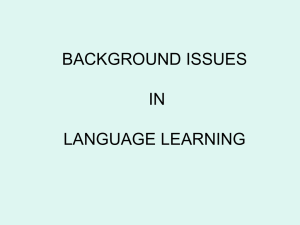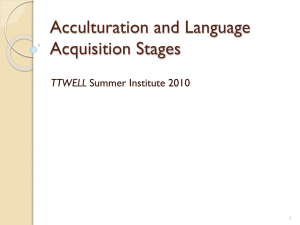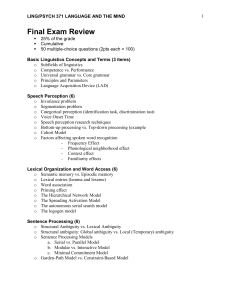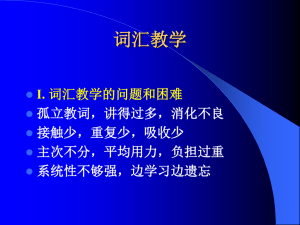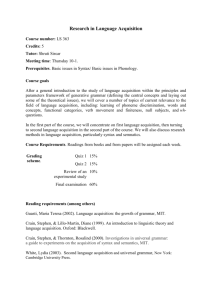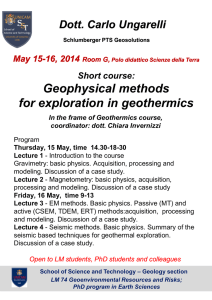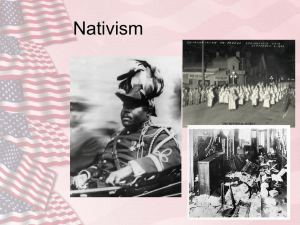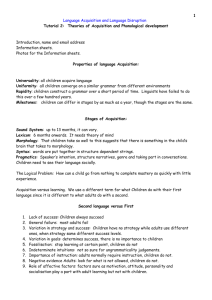Theories of Second Language Acquisition
advertisement
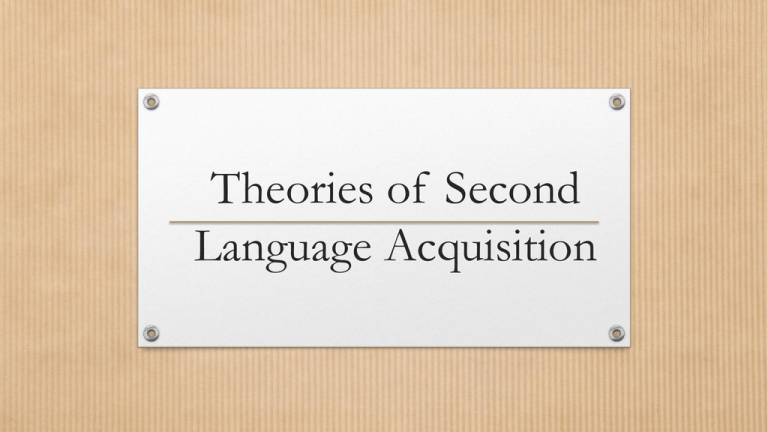
Theories of Second Language Acquisition Behaviorism • A change in external behavior achieved through a large amount of repetition of desired actions. • The reward of good habits and the discouragement of bad habits. In the classroom This view of learning lead us to • A great deal of repetitive actions. • Praise for correct outcomes and immediate corrections of mistakes. In the field of language learning this type of teaching was called the audio-lingual method. The whole class using choral chanting of key phrases, dialogues and immediate correction. Nativism • In The field of psychology, nativism is that certain skills or abilities are native or hardwired in to the brain at birth. • This is in contrast to the view Which states “brain has inborn capabilities for learning from the environment.” Researches on the human capacity for language provides strong support for a nativism view. • No human society has ever been discovered that doesn’t employ a language • All medically intact children acquire at last one language in early childhood. • Universal grammar (UG) that is used for the innate properties of human brain that are responsible for children’s rapid and successful acquisition of a native language, without any obvious effort during the first five years of life. Cognitivism • A cognivitism theory of learning sees second language acquisition as a conscious and reasoned thinking process, involving the deliberate use of language strategies. • Learning strategies are special ways of processing information that enhance comprehension, learning and or retention of information. • This explanation of language learning contrast strongly with the behaviorism which sees language learning as an unconscious, automatic process. • Cognitive theory promotes the constructive nature of the learning process. • Not the accumulation of facts. But constructing personal meaning from experience. Social Interactions • This theory emphasize the role of social interaction between the developing child and linguistically knowledgeable adults. • Language, according to social interactionists, develop through interaction with other human biengs. • Social interactionists climes that no critical period for language acquisition exist as the process of information is not dependent on biological or cognitive development. Worksheet Popular ideas about language learning: Match the following statements to the four major approaches to language learning. • I best learn things when I repeat them over and over. • I only learn something when I first understand it. • When I work on my own I learn much better. • I believe language learning capacity is God-given. • If I want to learn something well, I put the information into different categories. • I usually prefer to work in groups of people at my age in order to learn something complex. • I expect people around to correct me whenever I make a mistake. • A second language is learnt in the same order the first language is acquired. • When I share something I’ve learnt with others I make it stronger in my mind. • I always have a plan to start, keep, and finalize my studies. • I learn something best when I can use it in my real life. • I don’t believe in formal instruction. I think language should be picked up naturally.
